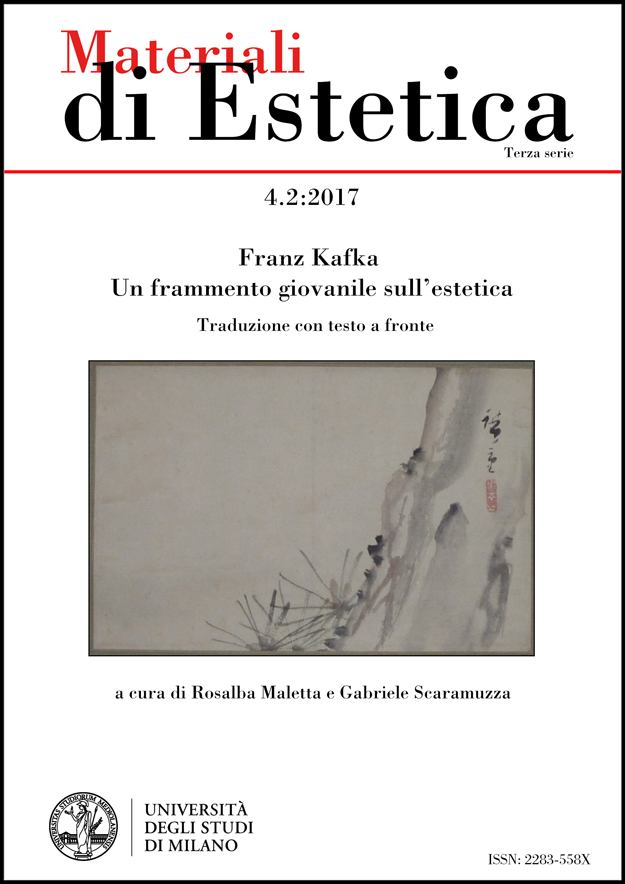Su Kafka e l’estetica
DOI:
https://doi.org/10.13130/mde.v0i4.2.9782Abstract
Unfolding this short Kafka’ essay, it is possible to grasp underneath some philosophical knots, which the writer takes from an aesthetic point of view, even though they are rooted in a different theoretical background. We refer in particular to Schopenhauer’s concept of will (Wille zum Leben), seen as unrelated to the aesthetic sphere, since conation is always the outcome of a full-grown rational itinerary. Leibniz’s idea of apperception and in particular of aeshtetic apperception might be considered from an aesthetic point of view which allows Kafka to introduce his distinction between aesthetic man and scientific men. However, the author does not thoroughly clarify this division. We might therefore glimpse that the aesthetic man is the one able to remove the pressure of will or the one of the reason, being permeated by the fascination of the object purified of its instrumental function. Hence, it would be better to translate “apperception” with the term “affection” [Liebhaberei]: the word affection indeed best suits the idea of “passion”.
Keywords: will; apperception; affection; inertia
Downloads
Riferimenti bibliografici
ANDERS, Gunther, Kafka. Pro e contro, a cura di B. Maj, Quodlibet, Macerata 2006.
FERRARI, Luigi, Alle fonti del kafkiano. Lavoro e individualismo in Kafka, prefazione di G. Galli e postfazione di R. Pozzi, Il Vicolo del Pavone, Piacenza 2014.
PACI, Enzo, "Poesia e comunicazione", in F. Mollia, Nostro novecento. Antologia della critica e della narrativa italiana contemporanea, Cremonese, Brescia 1961.
SCARAMUZZA, Gabriele, Kafka a Milano. Le città, le testimonianze, la legge. Mimesis, Milano 2013.






